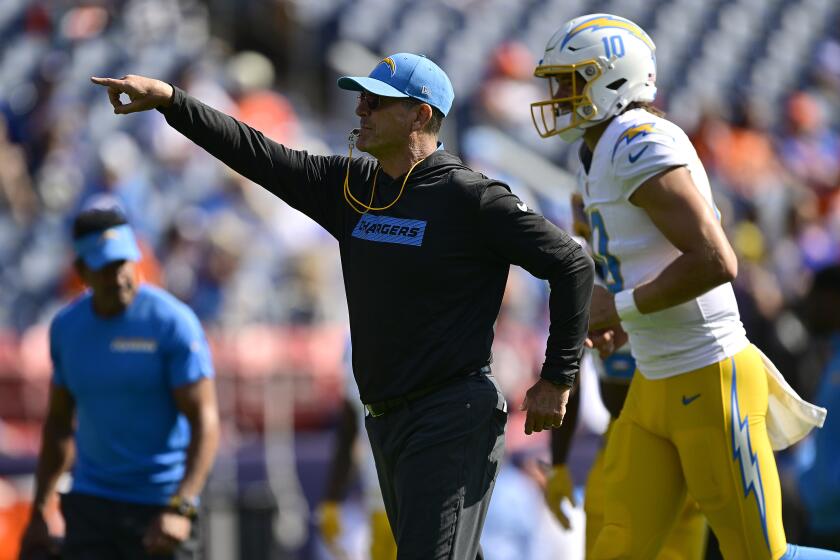A Word, Please: Editing errors can happen to anyone
Put on your editor’s cap for a moment and see if you can find the typo in this sentence: “Healthy doses of pepper spray and adrenaline were among the on-hand accouterments wielded by the two dozen Norfolk officers that responded to the embarrassing scene on the National Mall — a fracas occurring far closer to the Capitol than was considered safe in the judgment of the respondents’ commanding officers.”
The mistake, which any editor would be expected to catch, is “Norfolk.” Virginia police wouldn’t respond to a D.C. call.
Let’s try another: “Poring over the menu at Chez Pierre, it’s clear that creations like opah crepe hors d’oeuvres, lobster bisque and wasabi risotto — Executive Chef Jonathan Johns’ signature dishes created with the help of his wife Madeleine — were designed to delight the palate and supersede his penultimate culinary accomplishment.”
No matter how carefully you pored over this sentence, you might never catch that the writer called Johns a polygamist. Without a comma before “Madeleine,” the writer implied that her name is “restrictive information” necessary to identify which of Johns’ multiple wives we were talking about.
Editing is tough. When you’re looking for misspellings, comma errors slip by. When you’re trying to make sure subsequent references to Jonathan Johns are always “Johns” and never “John,” you can forget to check your dictionary’s preferred spelling of “accouterment.”
When you’re doing a close reading, major logical problems can slip by. When you’re focused on big-picture cohesiveness, you may not notice a bad headline.
Last week, ESPN editor Anthony Federico ran an online headline about a basketball player that included the expression “chink in the armor.” Because the player, Jeremy Lin, is Asian, it was an ugly double entendre. Federico claims it wasn’t deliberate.
“This has nothing to do with me being cute or punny,” he told the New York Daily News. “It was an honest mistake.”
A lot of people don’t believe that journalists are capable of honest mistakes. The more common perception depicts editors and reporters twisting the ends of their waxed mustaches and laughing maniacally while plotting the overthrow of society. Case in point: On perhaps a dozen occasions, readers of my column who’ve spotted errors — real or perceived — in my writing have sent me emails asking, “Were you testing us? Did you put that in on purpose to see if we’d catch it?”
My playing sneaky mind games by inserting errors into my own writing seems, to some people, more plausible than the possibility that I just made a mistake.
Similarly, some people might find it impossible to believe that Federico’s headline, which he wrote during the course of his job editing stories, was anything but deliberate. If I hadn’t spent so many years catching, failing to catch and even creating bizarre errors, I wouldn’t believe it myself.
But in fact, Federico’s claim that it just slipped out and then slipped past him is plausible.
Editing and writing have a way of pulling the mind in many directions at once, and the cognitive processes involved are complex, mysterious and full of surprises — sometimes nasty surprises.
As both a writer and an editor, I’ve made some doozy errors, including inexplicable brain hiccups, like the time I wrote a column about lexicographer Grant Barrett, calling him “Brad Garrett” throughout.
Editors are trained to seek out and destroy not just inflammatory language, but any language that could be a distraction to the story itself. So Federico messed up big time.
And though I can’t be sure whether his headline was an honest mistake, there’s one thing I am sure of: It could have happened on my watch.
JUNE CASAGRANDE is the author of “It Was the Best of Sentences, It Was the Worst of Sentences.” She can be reached at [email protected].
All the latest on Orange County from Orange County.
Get our free TimesOC newsletter.
You may occasionally receive promotional content from the Daily Pilot.



